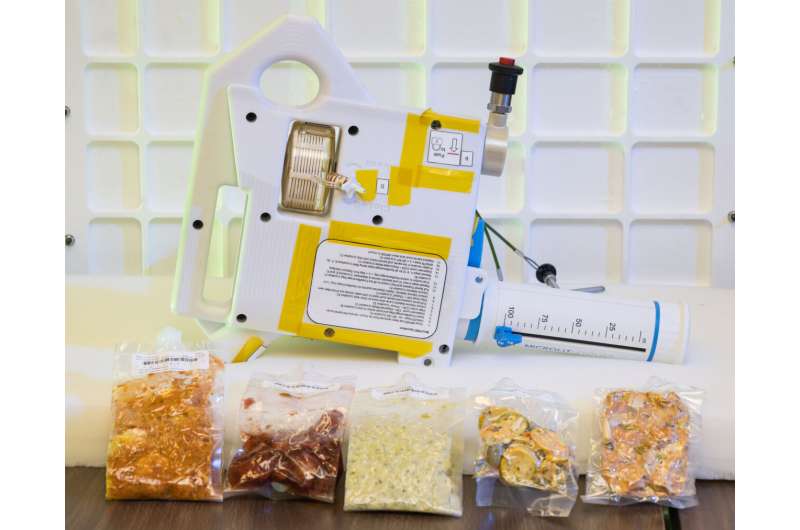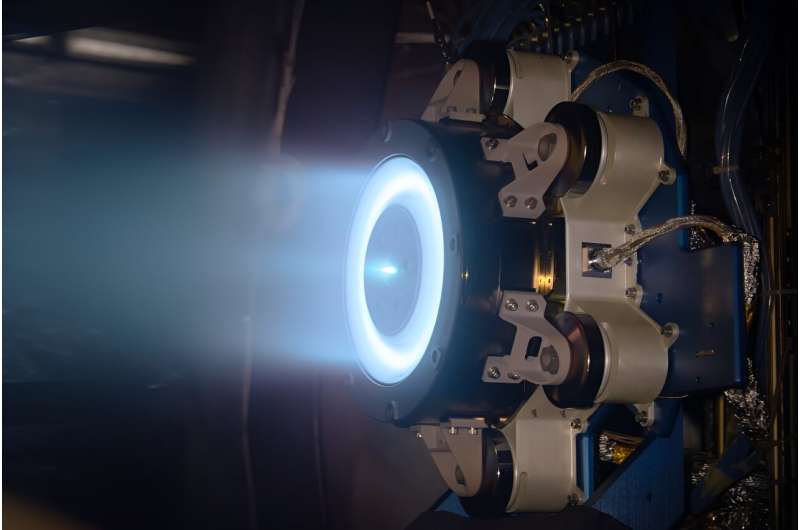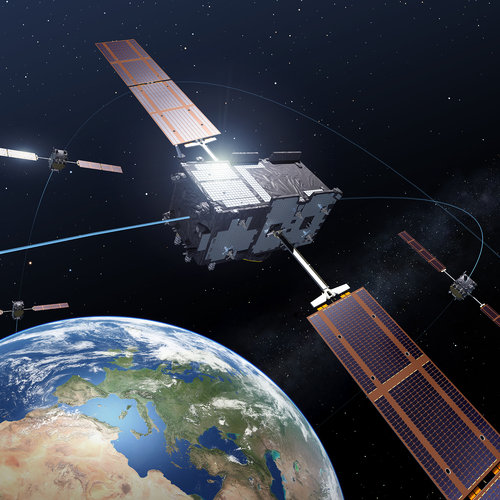A review of humanity's planned expansion between the Earth and the moon
Thursday, 05 September 2024 15:54
Between low Earth orbit and the moon, there is a region of space measuring 384,400 km (238,855 mi) wide known as Cislunar space. In the coming decades, multiple space agencies will send missions to this region to support the development of infrastructure that will lead to a permanent human presence on the moon.
This includes orbital and surface habitats, landing pads, surface vehicles, technologies for in-situ resource utilization (ISRU), and other elements that will enable the long-term exploration and development of the lunar surface.
For all parties concerned, Cislunar space holds immense potential in terms of scientific, commercial, and military applications. The vastly increased level of activity on and around the moon makes space domain awareness (SDA)—knowledge of all operations within a region of space—paramount.
It is also necessary to ensure the continued success and utilization of the covered region.
Artemis IV: Gateway gadget fuels deep space dining
Thursday, 05 September 2024 15:17
NASA engineers are working hard to ensure no astronaut goes hungry on the Artemis IV mission.
When international teams of astronauts live on Gateway, humanity's first space station to orbit the moon, they'll need innovative gadgets like the Mini Potable Water Dispenser.
Vaguely resembling a toy water soaker, it manually dispenses water for hygiene bags, to rehydrate food, or simply to drink. It is designed to be compact, lightweight, portable and manual, making it ideal for Gateway's relatively small size and remote location compared to the International Space Station closer to Earth.
Gateway's propulsion system testing throttles up
Thursday, 05 September 2024 15:14
The powerhouse of Gateway, NASA's orbiting outpost around the moon and a critical piece of infrastructure for Artemis, is in the midst of several electric propulsion system tests.
The Power and Propulsion Element (PPE), being manufactured by Maxar Technologies, provides Gateway with power, high-rate communications, and propulsion for maneuvers around the moon and to transit between different orbits.
The PPE will be combined with the Habitation and Logistic Outpost (HALO) before the integrated spacecraft's launch, targeted for late 2024 aboard a SpaceX Falcon Heavy. Together, these elements will serve as the hub for early Gateway crewed operations and various science and technology demonstrations as the full Gateway station is assembled around it in the coming years.
In this image, PPE engineers successfully tested the integration of Aerojet Rocketdyne's thruster with Maxar's power procession unit and Xenon Flow Controller.
Provided by NASA
New Galileo satellites operational after successful in-orbit testing
Thursday, 05 September 2024 14:00
The two new Galileo satellites launched in April have entered service, completing the second of three constellation planes. With every addition to the constellation, the precision, availability and robustness of the Galileo signal is improved. The next launch is planned in the coming weeks and the remaining six Galileo First Generation satellites will join the constellation in the next years.
Col. Michelle Idle, United States Space Force – Leading Women in Space
Thursday, 05 September 2024 13:34

Outer solar system is more populated than previously thought, research reveals
Thursday, 05 September 2024 12:38
Survey observations using the Subaru Telescope's ultra-widefield prime focus camera have revealed that there may be a population of small bodies further out in the Kuiper Belt waiting to be discovered.
The results, which are important for an understanding of the formation of the solar system, were obtained through an international collaboration between the Subaru Telescope and the New Horizons spacecraft traveling through the outer solar system.
NASA's New Horizons spacecraft was launched in 2006 with the critical mission of observing the surfaces of outer solar system bodies up close for the first time in human history; it successfully completed a flyby of the Pluto system in 2015, and in 2019 it made a flyby of one of the Kuiper Belt objects, (486958) Arrokoth.
There have been five spacecraft that have flown to the outer solar system (including New Horizons), but New Horizons is the only spacecraft that has flown through the Kuiper Belt while observing Kuiper Belt objects.
BepiColombo's best images yet highlight fourth Mercury flyby
Thursday, 05 September 2024 12:30
The ESA/JAXA BepiColombo mission has successfully completed its fourth of six gravity assist flybys at Mercury, capturing images of two special impact craters as it uses the little planet’s gravity to steer itself on course to enter orbit around Mercury in November 2026.
The closest approach took place at 23:48 CEST (21:48 UTC) on 4 September 2024, with BepiColombo coming down to around 165 km above the planet’s surface. For the first time, the spacecraft had a clear view of Mercury’s south pole.
China to launch Mars sample return mission in 2028, will follow planetary protection guidelines
Thursday, 05 September 2024 12:10
Canopy wins Air Force contracts to develop thermal protection systems
Thursday, 05 September 2024 12:00

Blue Origin set to test fire New Glenn stage at Canaveral launch pad
Thursday, 05 September 2024 11:50
Blue Origin has only 40 days to go to be ready for its first launch of its heavy lift New Glenn rocket, but has a lot of boxes to tick before liftoff.
That includes a test fire in the coming days of the rocket's second stage, which the company rolled out to the pad Tuesday at Cape Canaveral Space Force Station's Launch Complex 36.
Jeff Bezos' rocket company is targeting Oct. 13 for liftoff of NG-1, a mission to send a pair of satellites built by fellow rocket company RocketLab on a mission for NASA to Mars called ESCAPADE, which stands for Escape and Plasma Acceleration and Dynamics Explorers.
"We're looking forward to firing up those two BE-3Us on New Glenn's second stage in a few days," the company posted on X after the hardware's trip to the pad.
When it launches, the second stage and its engines will be tasked with deploying the twin ESCAPADE spacecraft on an 11-month trip to the Red Planet where they will study Mars' plasma and magnetic fields.
The launch, though, will be the culmination of years of development for New Glenn, which is constructed at Blue Origin's nearby factory on Merritt Island.
Senegal among new members of China’s ILRS moon base project
Thursday, 05 September 2024 10:30

Small, harmless asteroid burns up in Earth's atmosphere over the Philippines
Thursday, 05 September 2024 07:09
A small asteroid discovered on Wednesday harmlessly burned up in Earth's atmosphere the same day, NASA said.
The asteroid—about 3 feet (1 meter) across—was spotted by astronomers in Arizona and broke apart over the coast of the Philippines hours after the discovery.
This space rock, dubbed 2024 RW1, is only the ninth to have been spotted before its impact. Asteroids around this size hurtle toward Earth about every two weeks without posing any danger.
The asteroid was discovered through the Catalina Sky Survey, which is run by the University of Arizona and funded by NASA.
Sentinel-2C launch highlights
Thursday, 05 September 2024 06:00 Video:
00:14:09
Video:
00:14:09
The Copernicus Sentinel-2C satellite lifted off on 5 September at 03:50 CEST (4 September 22:50 local time) aboard the last Vega rocket, flight VV24, from Europe’s Spaceport in French Guiana.
Sentinel-2C will continue the legacy of delivering high-resolution data that are essential to Copernicus – the Earth observation component of the EU Space Programme. Developed, built and operated by ESA, the Copernicus Sentinel-2 mission provides high-resolution optical imagery for a wide range of applications including land, water and atmospheric monitoring.
Sentinel-2C was the last liftoff for the Vega rocket – after 12 years of service this was the final




